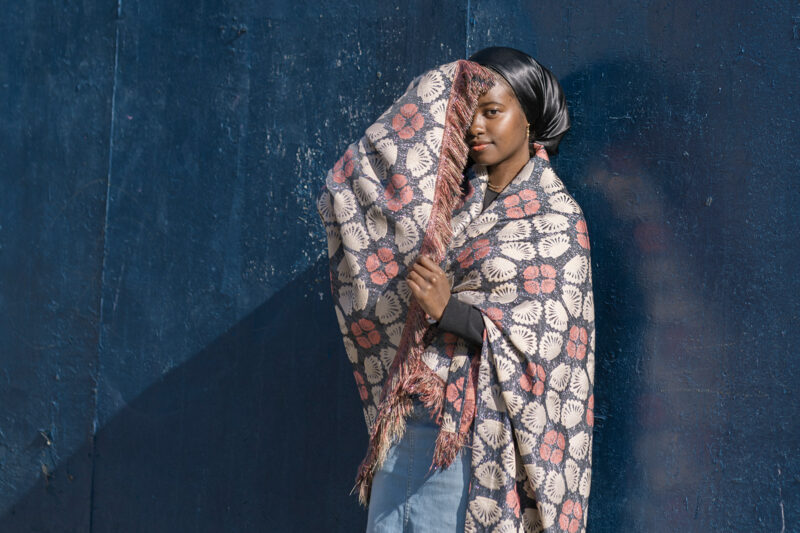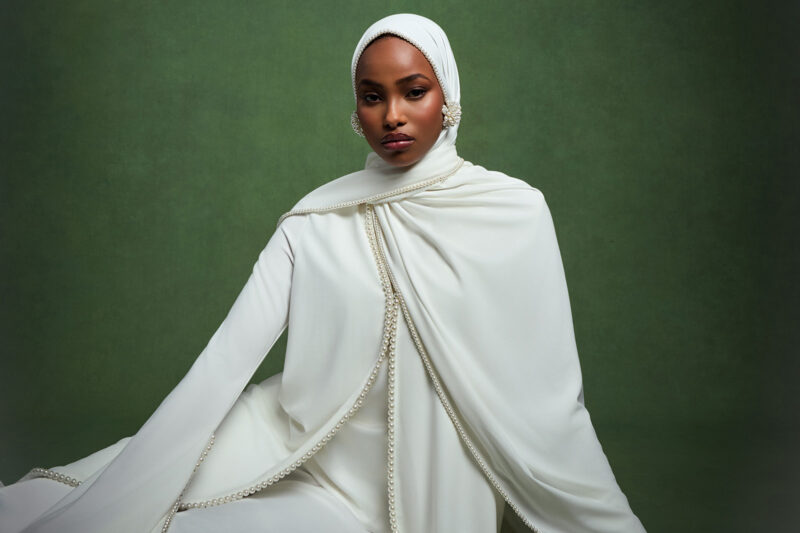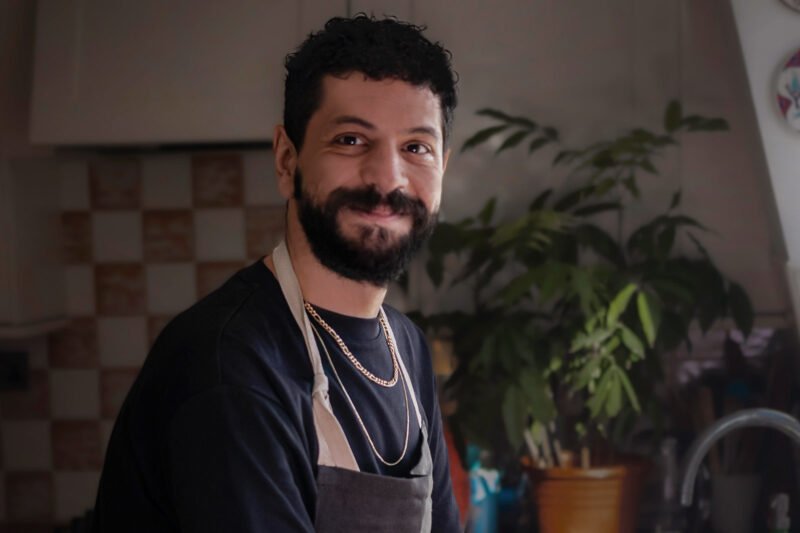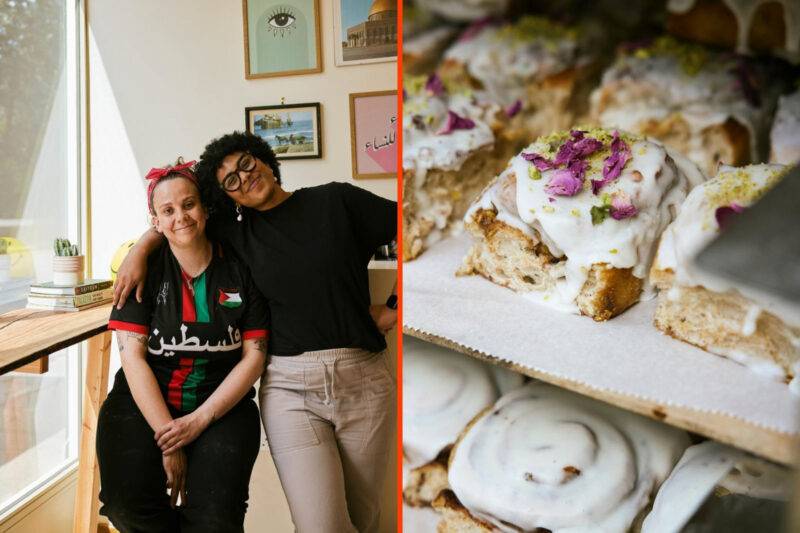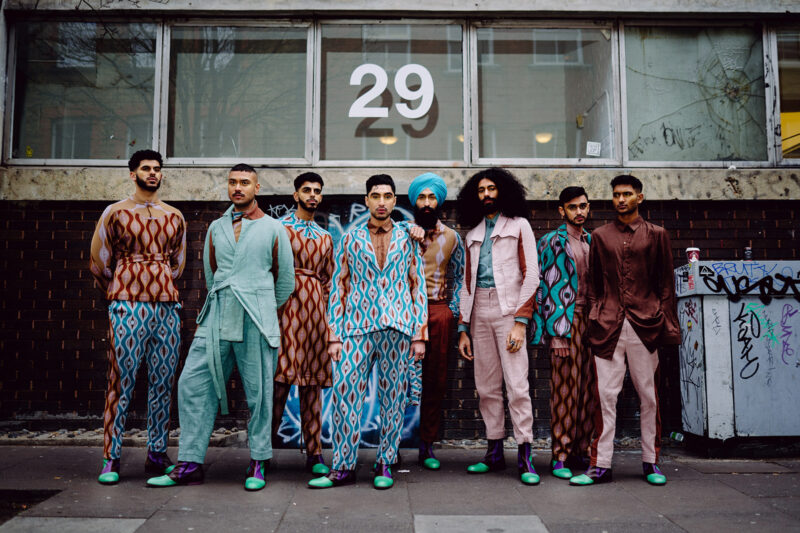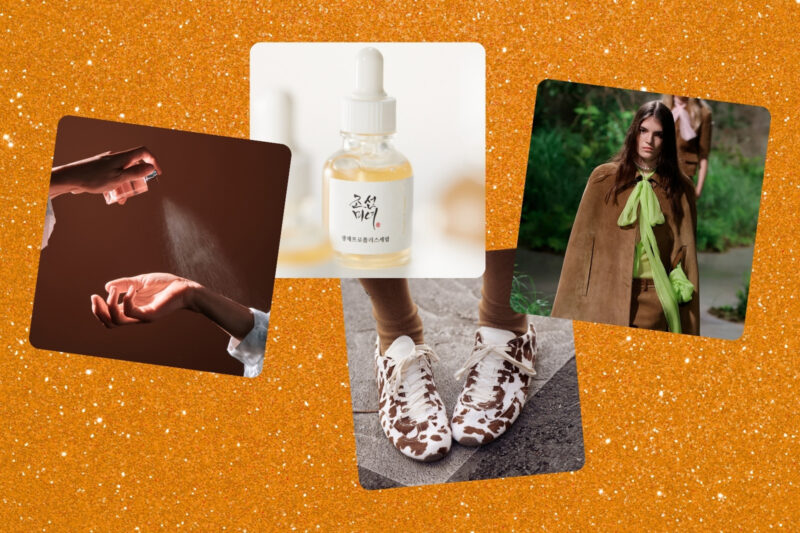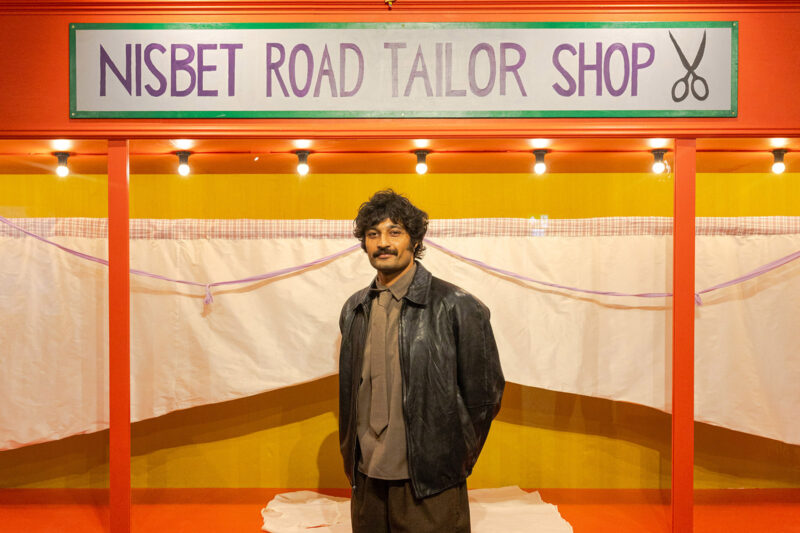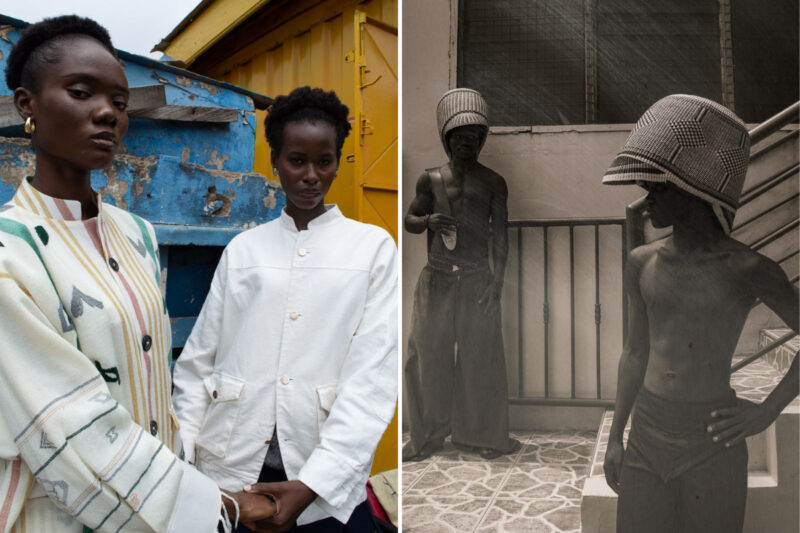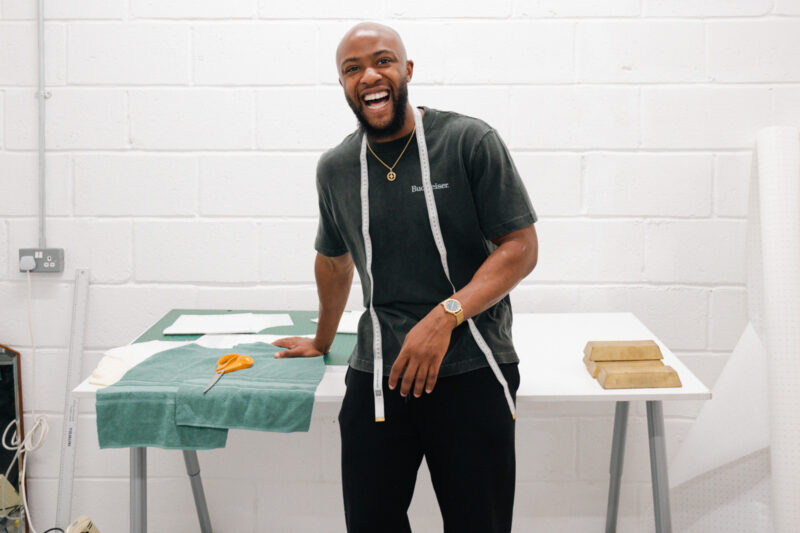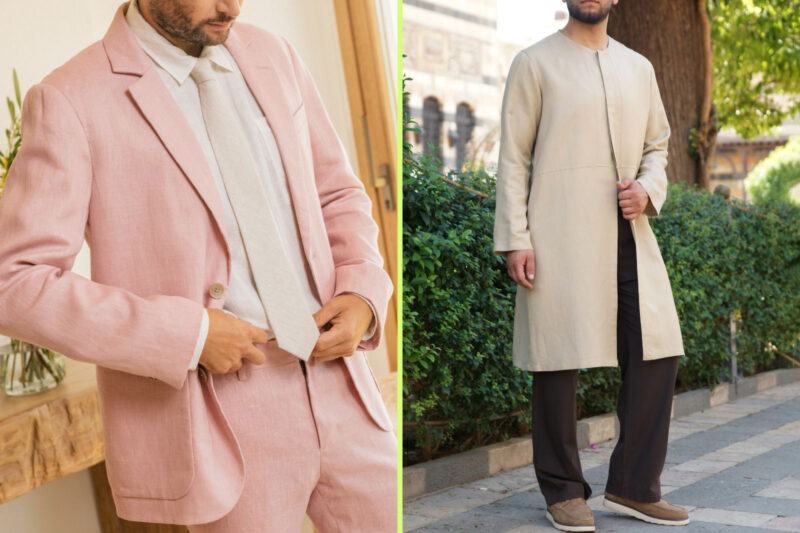Luxury modest lingerie gets an affordable makeover
A number of new sleepwear companies are marketing their products to Muslim and non-Muslim women in line with specific cultural and religious needs
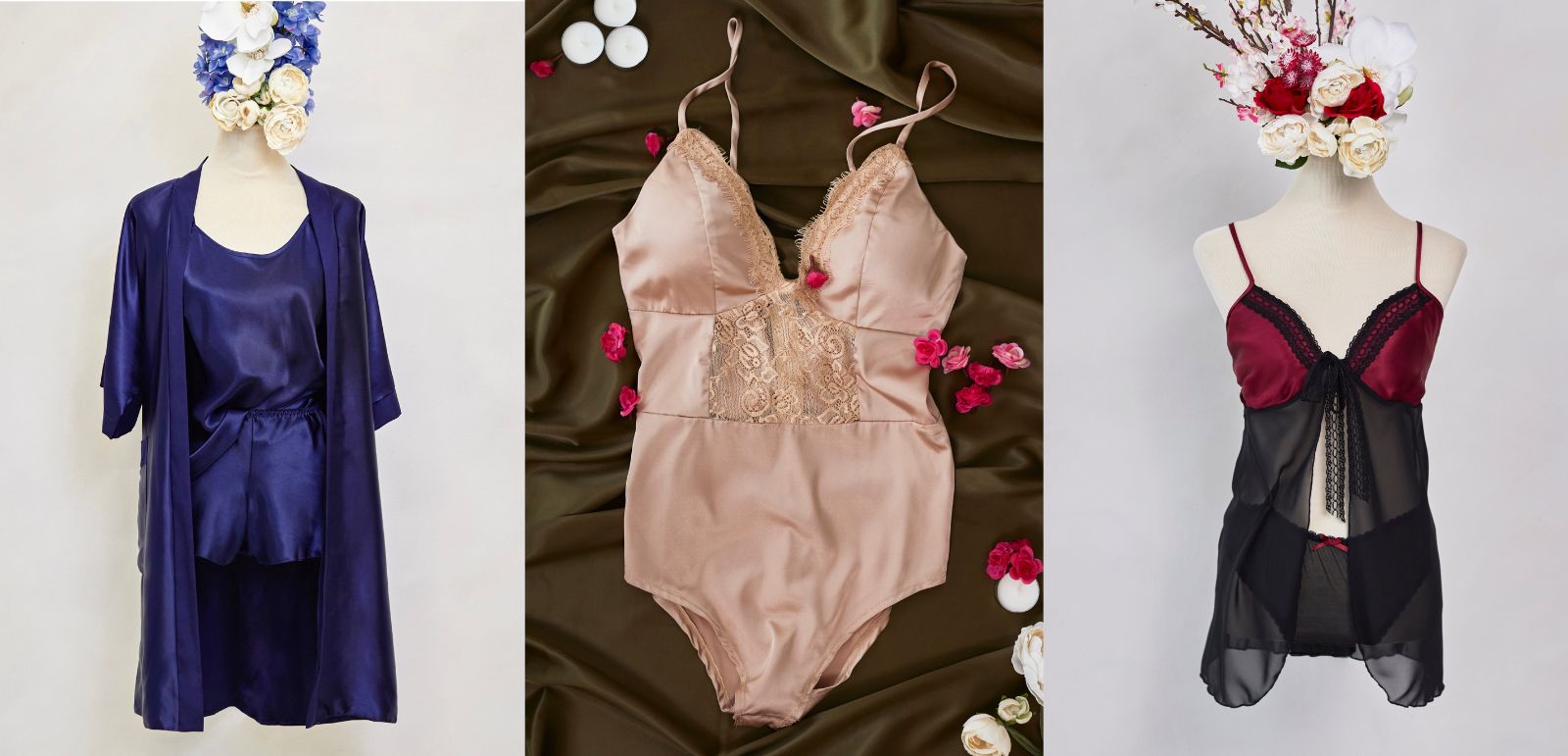
Sevim Asikoglu, 29, the founder of affordable lingerie brand Anissa Atelier, gave birth to her first son in January 2020. Asikolgu, who works as a dental manager in Toronto, struggled with her sense of self-image after the birth. Less than two months later, she and her husband faced the isolation that came with the Covid-19 global lockdown.
“It was very tough during Covid,” said Asikoglu, who originally hails from Germany. “When you become a mum you forget the woman you were like. It replaces and takes a piece of you. I realised I needed some comfortable bras. I just wanted to feel like myself again.”
Asikoglu visited several local lingerie shops, but didn’t feel comfortable making a purchase as she worried whether people would judge her for buying lingerie as a Muslim woman. She was also concerned that male shoppers in any lingerie store might sexualise her.
She saw that there was a gap in the market for lingerie shopping in a halal environment. A year later she launched Anissa Atelier, joining a small group of boutique Muslim-owned underwear brands. Visitors to the brand’s online store can find a range of sleepwear options, from corsets to bodysuits and nightdresses, with worldwide shipping available. In keeping with the company’s halal ethos, no models are used in the marketing of the clothing.
Halal lingerie is having its moment because of a growing appetite for modest apparel. The #ModestFashion hashtag on TikTok has clocked up 3.8bn views. Muslim spending on modest fashion is projected to grow from £237bn in 2021 to £302bn by 2025, according to the State of the Global Islamic Economy 2022 Report, published annually by DinarStandard, an international growth strategy research and advisory firm.
The boom can partly be attributed to women stepping away from dressing solely for the male gaze and seeking out more inclusive options that cater to specific cultural and religious needs.
Western brands like Victoria’s Secret anchor their marketing on the bodies of models like Gigi Hadid or Hailey Bieber, according to Asikoglu. “They’re more focused on who is wearing it than what you’re wearing. Here, it’s about wearing something comfortable where you focus on the product rather than the body.”
Anissa Atelier has received over 30,000 likes on TikTok and has attracted customers, including Muslim men and women, as well as non-Muslims because of a general fatigue with the “over-sexualised” advertising of Western brands. “A Muslim brand comes with etiquettes,” said Asikoglu, explaining that women trust her with pictures of their bodies when trying to find the right size and fit.
Asikoglu said that Muslim women sometimes feel anxious about making in-person lingerie purchases: shopping online may offer some protection. “You don’t have to be shy about your Muslim identity,” she said. “You can dare to experiment with new things that you might have been too shy to buy in a store.”
A 2021 study by the University of Surrey and the University of Padova in Italy found that sexualised images on Instagram resulted in higher levels of body dissatisfaction
Other entrepreneurs who work in the modest lingerie sector agree. Parul Begum and Hanah Bibi, the founders of lingerie brand Hadiqa London, said that the nudity in lingerie stores often discouraged them from buying lingerie when they were younger. “As British Muslims, it’s one of those things that you just kind of have to deal with like going to a luxury lingerie shop and seeing so much nudity,” said Begum.
“Why should we have to just deal with it?” she added. “Why not offer a space where Muslim women can shop without feeling like they’re sinning, without feeling awkward, and without having to see another woman’s awrah?” Awrah refers to intimate parts of the female body that are not permissible for other Muslim women to view.
Hadiqa London, launched in 2022, offers “elegant satin nightwear” for women with a range of products, including lingerie, bodysuits, babydolls, and pyjamas. Like Anissa Atelier, the brand doesn’t employ models and uses mannequins to promote its products.
Customers include non-Muslim women who feel that western lingerie marketing is generally over-sexualised. Begum and Bibi are currently preparing to open their first boutique for Hadiqa in East London at the end of June.
“There’s no such thing as halal lingerie,” said Bibi. “What we’re trying to do is make it halal in the way that we present it by using no models.”
The increasing sexualisation of lingerie advertising has become a growing issue of concern to authorities in recent years. The Advertising Standards Authority banned an advert released in 2019 by online fashion retailer Pretty Little Thing, deeming it “likely to cause serious offence”. The ASA also ruled that “the products had been presented in an overly sexualised way that invited viewers to view the women as sexual objects”.
A 2021 study of 247 Italian women aged 19-32, by the University of Surrey and the University of Padova in Italy, found that sexualised images on Instagram resulted in higher levels of body dissatisfaction. It also found that women who used the platform more frequently were prone to considering cosmetic surgery especially after viewing sexualised images.
“Findings such as these show there is a clear link between the sexualised imagery young women are exposed to on Instagram and how they feel about themselves,” Dr Francesca Guizzo, a co-author of the study and Social Psychology lecturer at the University of Surrey, said in the report. “More needs to be done to counteract body negativity; actions such as spreading body positivity messaging may work to improve female body satisfaction.”
Hasaria, another UK-based modest lingerie brand founded in 2020, is approaching 2m likes on TikTok. The company, founded by Aneesa Qureshi, who studied marketing and brand management at Kingston University, sells luxury nightwear for Muslim women for special occasions like wedding nights, honeymoons and anniversaries. “Normal lingerie brands can be quite overly sexualised and this is what I didn’t want. Hasaria has grace and elegance.”
Anissa Atelier, Hadiqa London, and Hasaria are carving a space at a time of considerable change in the upper echelons of the lingerie industry. The Victoria’s Secret Fashion Show, for example, is due to return this year after a four-year-hiatus, during which the brand went through an image overhaul after years of fronting thin, white women in skimpy items to customers.
The company, which has faced criticism for showing a lack of interest in inclusion, has made a greater effort in recent years to shift its strategy by hiring a more diverse range of models. A spokesperson for the brand told the Hollywood Reporter in March that it is now committed to “championing women’s voices and their unique perspectives”.
Asikoglu, who is hoping to quit her job at the dental clinic to focus full time on Anissa Atelier in 2024, said lingerie should be about empowering women instead of pandering to sexualised online imagery. “We’re trying to make the best halal environment compared to what the stores have now. Lingerie is so connected to sexuality online but it doesn’t have to be that way. Why can’t we just feel good and confident in our bodies?”
 Newsletter
Newsletter

